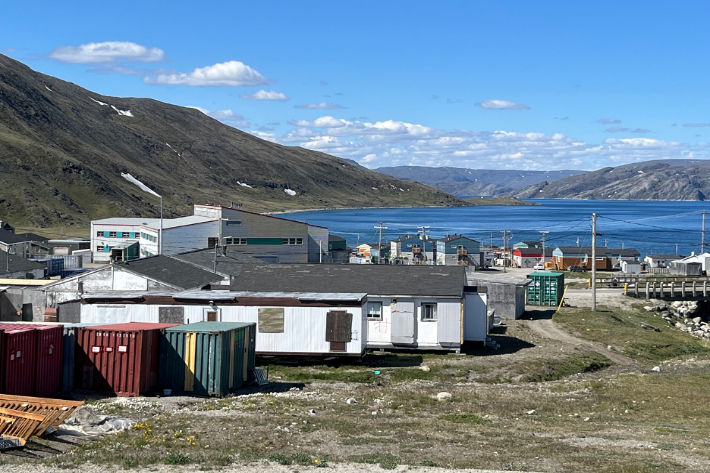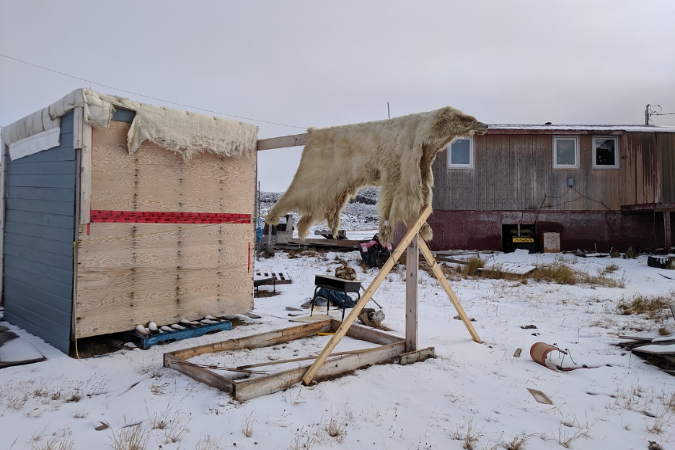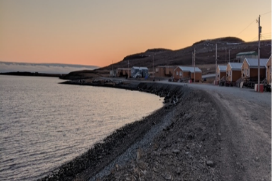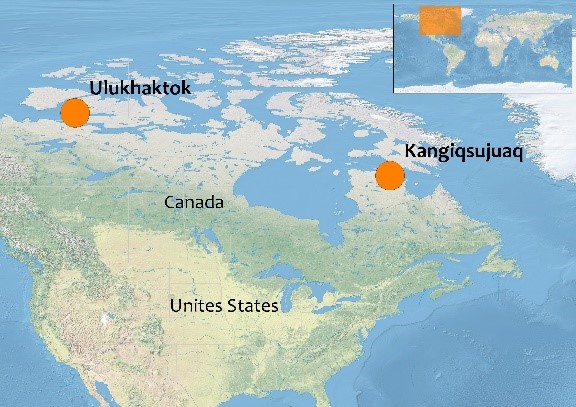Sanguatsiniq - Canada



Description

- Principal investigators: Elspeth Ready, Peter Collings
- MPI team members: Friederike Hillemann, Alejandro Pérez Velilla
- Research since: 2011 (Kangiqsujuaq, E. Ready), 1992 (Ulukhaktok, P. Collings)
Site Details
Kangiqsujuaq, Nunavik (pop. 800), and Ulukhaktok, Inuvialuit Settlement Region (pop. 400) are Inuit settlements in the Canadian Arctic. Both are remote and accessible only by airplane. Traditional foods, such as arctic char, caribou, and seal, are an important source of calories and nutrients, and hunting and fishing activities are a central component of Inuit identity. Throughout the Canadian Arctic, poverty and food insecurity are high, as a result of limited employment opportunities and a high cost of living.
The two communities contrast in informative ways with respect to the questions that the Sanguatsiniq project focuses on. Kangiqsujuaq is relatively well-resourced, with funding available for community projects via mining royalties, the land claims corporation, and the government of Quebec. Ulukhaktok, in addition to being smaller, is by comparison under-resourced and has fewer labor opportunities. Kangiqsujuaq has experimented with various programs in the area of mental health; in contrast, Ulukhaktok has less access to funds, program development tends to be driven by regional initiatives, and community members have less experience in program management and development. Consequently, a benefit of our comparative approach is that it contributes to capacity-building in Inuit communities, both through our collaborative research design and through knowledge transfer between communities.
The settlements likewise vary culturally and linguistically. Inuktitut (Eastern Arctic Inuktut) is spoken in the homes of nearly all Kangiqsujuarmiut, but very few Ulukhaktomiut are fluent in Inuinnaqtun (Central Arctic Inuktut), which has been designated as severely endangered. This difference is relevant because considerable research on Indigenous well-being focuses on language as a crucial factor in cultural transmission. The communities also differ in social structure. Ulukhaktok kinship and social organization, for example, has long emphasized relations with age-mates and within-generation kin over lineal ties relative to other Central Arctic Inuit. Kinship in Kangiqsujuaq more resembles Eastern Arctic Inuit, placing greater emphasis on the ilagiit (multigenerational extended familes).
Comparisons between Kangiqsujuaq and Ulukhaktok therefore provide an opportunity to examine how language, community access to government funding, and social structure impact subsistence production, sharing patterns and subsequent food security. Including two communities substantially increases the applied impact of our work, as communities can learn from their differences and from the results of research conducted in each community.